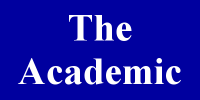Latest Stories
Rise of Progressive Conservatives | Possible Gov. Corporation Under Discussions | Sub-Nationalism Grows in Varish Cities

The main publication of the Videnhagen Press Group, the Videnhagen Press is the most printed and read newspaper in Vermark. Edited by Frans Golning, the Press has little bias, but has been ridiculed in the past for being liberal. Writers at the Press cover political, social, and other events in Videnhagen, Vermark, and around the world. Over forty percent of the publications made by the Videnhagen Press Group company fall under the Videnhagen Press itself. It is printed and distributed across Vermark on a daily basis.

The Academic is the longest running publication in Vermark. It was established in year 1775 as an academic journal for the University of Videnhagen. In 1820, it merged with the Videnhagen Press and became unaffiliated with the university. Today, The Academic discusses a wide array of issues with an academic tone. Writers are no longer confined to those belonging to the academic community; leaders of all fields are invited to write for The Academic.

Capital magazine is Vermark's premier business magazine. It exists both online and in print. Capital covers topics related to business, finance, technology, and the economy; Capital is also known for publishing lists such as the Capital 100 list, the Top 10 in the Next 10 (years), and the Multiverse 15.

Sportmark is Vermark's premier sporting news source. It exists both online and on television, however, it does not exist in print. Access to the sportmark.vk website can be found by clicking the logo above.



